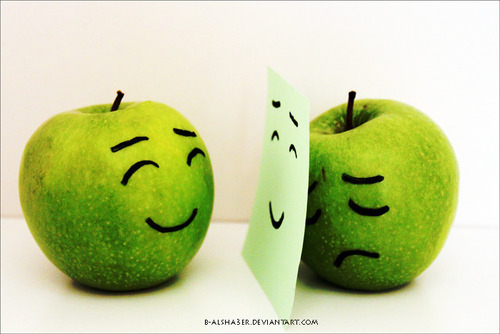At Penn State, we often experience pretty serious winters. Some people love the snow and the winter, but others have a much harder time with it. This is more than them just not liking that particular season. Why does Seasonal Affective Disorder occur?

photo from http://tl.fanpop.com/clubs/random/images/24012675/title/sad-photo
Some people experience Seasonal Affective Disorder (SAD) when the weather changes. According to MayoClinic,“Seasonal affective disorder (SAD) is a type of depression that’s related to changes in seasons — SAD begins and ends at about the same times every year”. It says that it usually starts in the fall and goes through the winter months.
The symptoms of SAD, according to this article, are pretty similar to the symptoms of clinical depression. Some of the symptoms include “Lack of energy to do everyday tasks”, “Feelings of guilt and worry”, and “Social and relationship problems”. The difference between SAD and Clinical Depression is that people with SAD only feel these symptoms during certain seasons.
The causes of SAD are listed on this website. The two statements that I find most interesting from this site are “Chemical changes in the brain caused by changes in the amount of sunlight are probably involved. Risk factors for SAD include living in geographical locations that are dark or cloudy during the winter” and “Low levels of vitamin D seem to be a risk factor for developing a number of mood disorders, including SAD”. We seem to be at risk, as students of Penn State. We experience winters that are often cloudy.
This study was done with three women who were Vitamin D deficient, and taking antidepressants. The study showed that as the women’s levels of Vitamin D went up the symptoms of depression went down. This is really hard to get conclusive evidence from because of several reasons. The study was very small, and there could’ve easily been third variables involved. On the same site, on the next page it talks about another reason why it is hard to say that SAD is a result of low Vitamin D for certain. Reverse causation could be an issue here. The site says, “People who have depression are at high risk for vitamin D deficiency because they stay indoors, don’t exercise too much, and are likely not eating a healthy diet.” It could logically make sense both ways, and that is why it is hard to tell.
In conclusion, I think that every Penn State student that feels a little more sad during the winter months should take extra Vitamin D. There are no studies that I can find that show any issues with taking Vitamin D supplements daily. Depression can be harmful to every aspect of life, so I think taking a vitamin a day to decrease the chance is definitely worth doing!

photo from http://orthopedicsurgerysandiego.com/vitamin-d-deficiency-as-a-child-could-prove-harmful-later-on/











